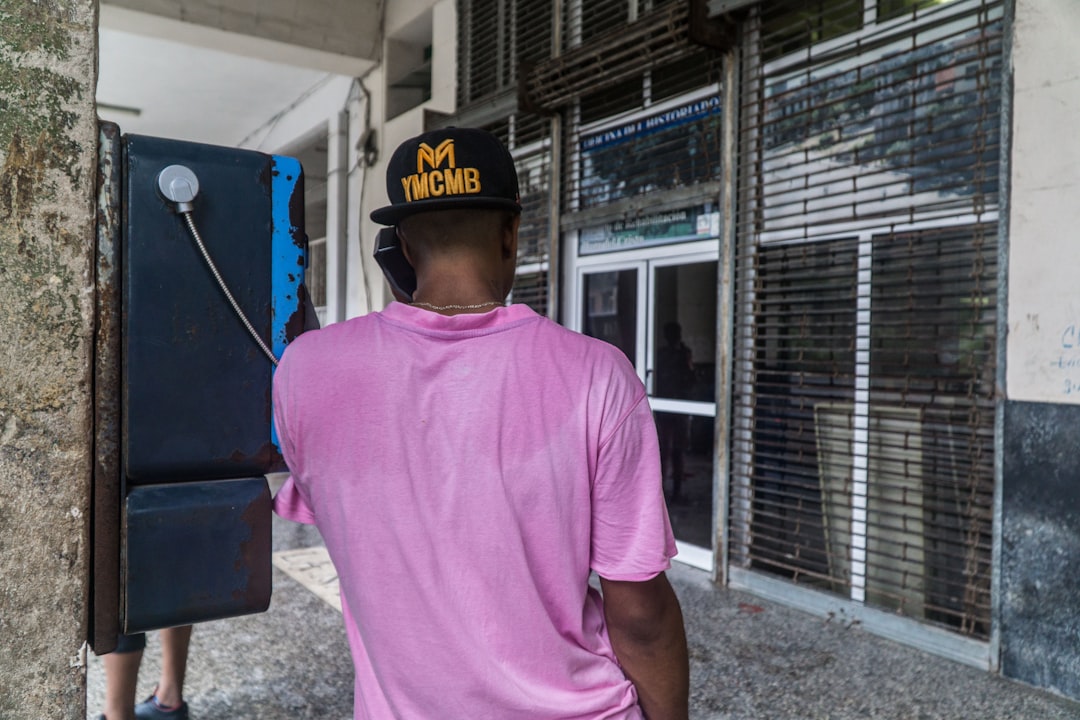In Connecticut, the "Do Not Text" laws protect residents from unwanted promotional text messages. These laws are enforced against entities ignoring privacy preferences and can result in severe penalties. Residents facing violations can consult specialized Do Not Text Laws lawyers or robocall attorneys to protect their rights, block messages, and seek damages. Registration on the state's Do Not Call Registry further enhances protection against automated calls.
“In Connecticut, the ‘Do Not Text Laws’ offer residents a much-needed respite from unwanted automated communications, particularly through autodialers. This comprehensive guide delves into the intricacies of these laws, protecting individuals from unsolicited text messages and robocalls. We explore who is covered, what’s prohibited, and the consequences for violators.
Learn how to opt-out effectively and understand the vital role of experienced Do Not Text Laws lawyers in Connecticut, who can provide legal recourse for robocall issues. Discover top law firms specializing in this field to ensure your rights are protected.”
- Understanding Connecticut's Do Not Text Laws
- Who is Covered by the Do Not Text Laws in CT?
- What Types of Unwanted Texts are Prohibited?
- Consequences of Violating CT's Do Not Text Laws
- How to Opt-Out of Robocalls and Automated Messages
- The Role of Lawyers in Handling Unwanted Communication
- Finding the Right Lawyer for Robocall Issues in Connecticut
Understanding Connecticut's Do Not Text Laws
Who is Covered by the Do Not Text Laws in CT?
In Connecticut, the Do Not Text Laws protect individuals from unwanted text messages promoting goods or services, often referred to as robocalls. These laws are designed to safeguard consumers from unsolicited advertising, giving them control over their communication preferences. The scope of these regulations includes various entities, such as businesses, marketing agencies, and even political campaigns, ensuring that everyone receives respect for their right to privacy.
The Do Not Text Laws in CT specifically cover residents who have registered their phone numbers on the state’s “Do Not Call” list or those who have made it explicitly clear through opt-out signals that they do not consent to receiving promotional text messages. Individuals seeking legal counsel regarding violations of these laws can turn to specialized law firms and attorneys, such as Do Not Text Laws lawyers in Connecticut, who are equipped to navigate the complexities of robocall legislation and protect their clients’ rights.
What Types of Unwanted Texts are Prohibited?
In Connecticut, certain types of unsolicited text messages are strictly regulated to protect consumers from unwanted marketing and communication. The Do Not Text Laws aim to prevent businesses and individuals from sending automated or robocall texts without explicit consent. According to these laws, prohibited content includes promotional texts, advertising material, and any message that constitutes an attempt to sell or promote a product or service. This means that if you have not given permission for direct marketing via text, law firms, attorneys, and companies engaging in robocall practices could face legal repercussions.
These regulations are in place to safeguard Connecticut residents from receiving unsolicited texts, ensuring their privacy and peace of mind. Individuals who wish to prevent such messages can register with the state’s Do Not Call list or utilize tools provided by their mobile carriers to block automated calls and texts. For those facing issues with persistent robocalls or seeking guidance regarding lawyer for robocall in Connecticut, consulting with a specialized attorney is advised to understand their rights and available legal options.
Consequences of Violating CT's Do Not Text Laws
In Connecticut, violating the Do Not Text laws can lead to severe consequences for businesses and individuals alike. If found guilty, companies could face substantial fines, ranging from $100 to $25,000 or more per violation, depending on the intent and nature of the offense. For instance, sending unsolicited text messages promoting products or services to registered recipients is a direct breach of these laws, and such actions can promptly escalate legal issues for businesses.
Individuals who engage in unauthorized texting campaigns may also be held accountable. Legal professionals specializing in Do Not Text Laws (like Do Not Text Laws lawyer Connecticut, robocall attorneys Connecticut, or lawyers for robocall Connecticut) can guide those affected through the legal process, offering strategies to mitigate penalties and protect rights. These laws are designed to safeguard residents from unwanted and intrusive messaging, ensuring their peace of mind and privacy in an era dominated by digital communication.
How to Opt-Out of Robocalls and Automated Messages
In Connecticut, you have the right to opt-out of receiving automated or prerecorded telephone messages from telemarketers and robocalls. The first step is to register your number with the state’s Do Not Call Registry. This can be done online or by calling 1-866-937-4522. Once registered, Connecticut laws prohibit businesses from using automated dialing systems or artificial or prerecorded voices to deliver marketing calls to landlines and cell phones without prior express consent.
For added protection against robocalls and automated messages, consider hiring a lawyer specializing in Do Not Text Laws. A Connecticut-based attorney or law firm experienced in handling such cases can help you navigate legal options if you’ve received unwanted automated communications. They can guide you on how to file complaints with relevant authorities and potentially seek damages if your rights have been violated by robocall attorneys or law firms operating within the state.
The Role of Lawyers in Handling Unwanted Communication
In Connecticut, unwanted communication through text messages or robocalls has become a significant issue, prompting many individuals to seek legal recourse. When faced with persistent or unsolicited texts and calls, engaging a lawyer specialized in this area can be an effective step. These legal professionals play a crucial role in advocating for individuals’ rights and providing guidance on how to challenge such practices.
Do Not Text Laws lawyers and law firms in Connecticut are well-versed in the state’s consumer protection laws and regulations related to telemarketing. They assist clients by drafting cease-and-desist letters, representing them in negotiations with call centers or marketing companies, and even filing legal actions if necessary. Their expertise lies in helping people understand their rights and taking appropriate measures against autodialer abuse without prior permission. Additionally, these attorneys can offer advice on how to block future communications, ensuring clients’ peace of mind and privacy.
Finding the Right Lawyer for Robocall Issues in Connecticut
When dealing with autodialer issues in Connecticut, finding a lawyer who specializes in do-not-text laws is essential. Many law firms offer expertise in representing clients affected by unwanted robocalls, ensuring their rights are protected under Connecticut’s strict consumer protection regulations. These attorneys can guide you through the legal process and help navigate the complexities of seeking justice for invasive autodialer activities.
Choosing a reputable law firm with experience in this field is crucial. Look for professionals who actively handle cases related to automated telemarketing calls, possess a deep understanding of Connecticut’s consumer protection laws, and have successfully represented clients in similar situations. A well-versed do-not-text laws attorney or law firm in Connecticut can provide valuable assistance in holding autodialers accountable and securing appropriate remedies for victims.






